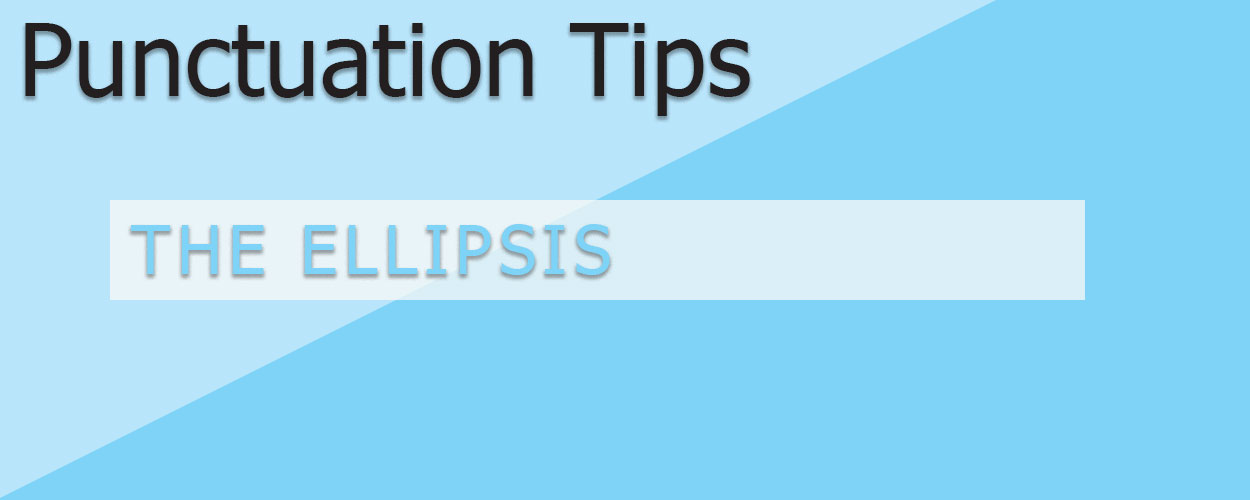

Posted: February 16, 2023
Definition: a punctuation mark (…) indicating an omission from speech or writing of a word or words that are superfluous or able to be understood from contextual clues.
An ellipsis, or ellipsis points, are three points indicating a break in dialogue or omitted information. They can either be spaced or unspaced, depending on the style/language used.
Use ellipsis points in dialogue to demonstrate uncertainty.
When inserting a quote with missing material, use ellipsis points where the material is omitted. It may also come up in dialogue, in which the beginning, middle, or end of the dialogue is missing or simply intelligible.
If the ellipsis points fall at the end of a sentence, finish it as you normally would by adding a period after.
Ellipses are most often seen in quotes or dialogue. Within quotation marks, ellipsis points can be combined with periods, commas, and question marks. It is debated whether using ellipses with exclamation marks is correct.
Aaron, J.E. & Morrison, A. The Little, Brown Compact Handbook, 5th Canadian ed. Pearson, 2013, chap 5
Judd, K. Copyediting, A Practical Guide, 3rd ed. California, CA: Crisp Learning, 2001, chap 4
Tigerpetal Press is a small book press dedicated to publishing local authors and poets.